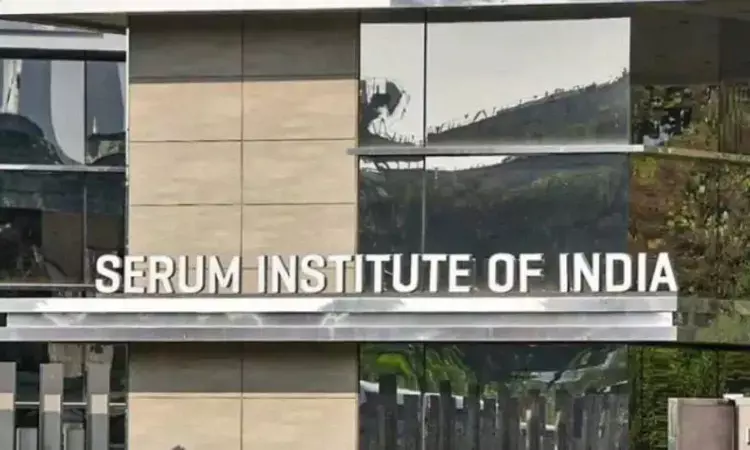- Home
- Medical news & Guidelines
- Anesthesiology
- Cardiology and CTVS
- Critical Care
- Dentistry
- Dermatology
- Diabetes and Endocrinology
- ENT
- Gastroenterology
- Medicine
- Nephrology
- Neurology
- Obstretics-Gynaecology
- Oncology
- Ophthalmology
- Orthopaedics
- Pediatrics-Neonatology
- Psychiatry
- Pulmonology
- Radiology
- Surgery
- Urology
- Laboratory Medicine
- Diet
- Nursing
- Paramedical
- Physiotherapy
- Health news
- Fact Check
- Bone Health Fact Check
- Brain Health Fact Check
- Cancer Related Fact Check
- Child Care Fact Check
- Dental and oral health fact check
- Diabetes and metabolic health fact check
- Diet and Nutrition Fact Check
- Eye and ENT Care Fact Check
- Fitness fact check
- Gut health fact check
- Heart health fact check
- Kidney health fact check
- Medical education fact check
- Men's health fact check
- Respiratory fact check
- Skin and hair care fact check
- Vaccine and Immunization fact check
- Women's health fact check
- AYUSH
- State News
- Andaman and Nicobar Islands
- Andhra Pradesh
- Arunachal Pradesh
- Assam
- Bihar
- Chandigarh
- Chattisgarh
- Dadra and Nagar Haveli
- Daman and Diu
- Delhi
- Goa
- Gujarat
- Haryana
- Himachal Pradesh
- Jammu & Kashmir
- Jharkhand
- Karnataka
- Kerala
- Ladakh
- Lakshadweep
- Madhya Pradesh
- Maharashtra
- Manipur
- Meghalaya
- Mizoram
- Nagaland
- Odisha
- Puducherry
- Punjab
- Rajasthan
- Sikkim
- Tamil Nadu
- Telangana
- Tripura
- Uttar Pradesh
- Uttrakhand
- West Bengal
- Medical Education
- Industry
Serum Institute Of India Gets CDSCO Panel Nod To study Dengue Tetravalent Vaccine

New Delhi: Vaccine major Serum Institute of India has got a go-ahead from the Subject Expert Committee (SEC) functional under Central Drug Standard Control Organization (CDSCO) to conduct a Phase I/II clinical trial of Dengue Tetravalent Vaccine (Live, Attenuated).
This came after the Serum Institute of India presented the revised protocol for the grant of permission to conduct Phase I/II clinical trial of the Dengue Tetravalent Vaccine (Live, Attenuated).
Dengue Tetravalent Vaccine (Live, Attenuated) provides protection against fever and hospitalization resulting from dengue disease caused by any of the 4 dengue virus serotypes. Side effects are mostly mild to moderate in severity and disappear within a few days.
Dengue is a mosquito-borne tropical disease caused by the dengue virus, leading to mild, flu-like symptoms in most people. However, a small number of patients develop severe disease, with potentially fatal bleeding and organ damage.
Dengue spreads to people through the bite of an infected mosquito. It does not spread directly from person to person. However, a pregnant person can pass the infection on to the baby. In rare cases, it can spread through a blood transfusion, organ transplant, or needle stick injury.
This vaccine contains attenuated (weakened) versions of dengue virus serotypes (varieties) 1, 2, 3, and 4.
Earlier, the Medical Dialogues Team had reported that at the SEC meeting for Vaccine held on 23rd March 2023, the committee had recommended the firm revise the Phase I/II clinical trial protocol as below:
1. The trial design should be seamless with Phase I followed by Phase II along with DSMB review after Phase-I. The clinical trial report of Phase-I with DSMB recommendations should be submitted before the initiation of Phase II.
2. The clinical trial should be stratified and conducted in adult subjects initially and then in pediatric subjects.
3. The inclusion of seropositive and seronegative subjects should be clearly defined in the protocol.
In accordance with the above, at the recent SEC meeting on 18th July 2023, the Serum Institute of India presented the revised protocol for the grant of permission to conduct a Phase I/II clinical trial of the Dengue Tetravalent Vaccine (Live, Attenuated).
After detailed deliberation, the committee recommended the grant of permission to conduct Phase I/II clinical trial of the Dengue Tetravalent Vaccine (Live, Attenuated) as per the presented protocol.
Also Read:Exemed Pharma Gets CDSCO Panel Nod To Study FDC of Montelukast, Bilastine
Doctor of Pharmacy
Dr. Divya Colin, a Doctor of Pharmacy Graduate with extensive experience in clinical and hospital settings and confidently equipped with diagnostic and therapeutic skills. She also has spread out exposure to Oncology Departments in Mysore Medical College and Research Institute as Oncology Pharmacist. Currently she is building a career in clinical research and clinical data management. She has been a part of Medical Dialogue since January 2022.


